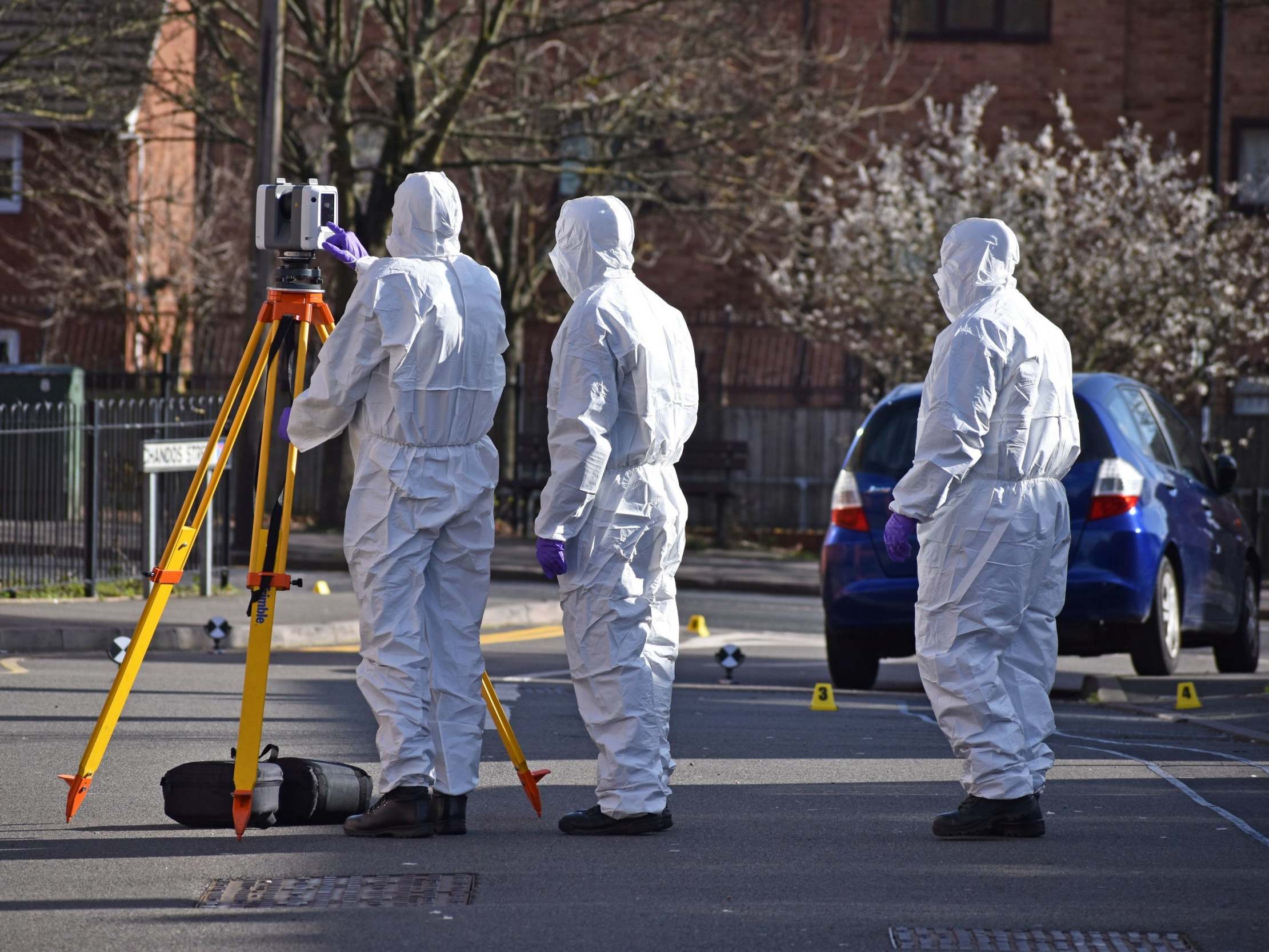Police cuts contributed to rise in murders in Britain, Home Office report says
Research finds that drug markets have also driven up the number of homicides

Budget cuts to police contributed to the rising number of murders in Britain, an official report has found.
Home Office research named the falling number of police officers since 2010 were a “contributory factor”, alongside drugs and terror attacks.
“The evidence suggests that levels of police resources and the activities pursued can drive homicide trends,” said a report released on Thursday.
“If all else is equal, more police officers means fewer homicides and bringing justice to lawless areas or markets seems particularly important.”
But the document warned that increasing police numbers were “no panacea”, following Boris Johnson’s pledge to recruit 20,000 police officers over three years.
The teenagers murdered in London in 2018
Show all 21“What the police do is clearly important but there is a shortage of proven strategies in England and Wales,” it concluded.
Theresa May sparked outrage among police officers last year when she insisted there was “no direct correlation between certain crimes and police numbers”.
While home secretary, she had accused the Police Federation of “crying wolf” about the impact of austerity, which caused the number of police officers to fall by more than 20,000.
Mr Johnson reversed the government’s stance last year by promising to recruit that number of officers over three years and increasing police funding, although critics say cuts to youth workers and other public services also play a part.
Statistics show that the homicide rate increased by 39 per cent between March 2015 and 2019, but the government response was “hampered” because the driving factors were not understood.
The Home Office report said that rising murders since 2014 had been partly driven by drug-related cases and partly by terror attacks, whose victims are included in the homicide count.
It found that sudden spikes are often linked to “destabilisation of illicit drug markets”, where small groups of people are drawn into patterns of tit-for-tat violence “due to gang beef or competition related to a change in supply or demand of illicit drugs”.
Researchers said that crack cocaine in particular has been linked with the recent homicide surge.
The drug is commonly dealt by “county lines” gangs, who use children to transport their product from urban hubs to rural targets – a practice that has been linked to increased knife carrying.
Knives or sharp instruments are the most common weapons used and the majority of victims are white.
But the report found that in the year to March 2018, homicide rates were four times higher for black victims and eight times higher for black suspects.
Researchers said the gap narrows in deprived areas, suggesting poverty is a “factor in explaining higher rates among black people”.
They concluded that homicide rates could be reduced with a long-term scientific approach, and stressed that figures were still low in Britain compared to other nations.
The report recommended the use of prevention programmes alongside focused police operations.
“To fully understand and prevent the sudden surges in homicide it is vital to marry up street-level intelligence on drug markets and gang conflicts to data analysis of serious violence trends,” it concluded.
“We need to know which types of shift in drug supply, demand and gang conflict typically cause surges in homicides.”
It was published as the policing minister spoke with police and crime commissioners at a forum aimed at tackling serious violence, including county lines drug dealing, and driving down homicides.
Kit Malthouse said: “The rise in serious violence is deeply concerning and we can only tackle it by working together and giving police and crime commissioners the tools to reduce crime at a local level.”
Yvette Cooper, chair of the Home Affairs Committee, called the findings “damning” and said the government had been repeatedly warned of austerity’s consequences for public safety.
“For years, Home Office ministers have insisted that there is no direct relationship between the number of police officers and levels of crime on our streets – this report indicates that there is one,” the Labour MP added.
“The committee will be monitoring the government’s recruitment process to ensure that the planned increase in police officers occurs and that police forces are supported in the logistical challenges posed.”
A Home Office spokesperson said: “We are committed to tackling serious violence and we are recruiting 20,000 extra police officers over the next three years to keep our communities safe.
“Tough law enforcement is only one part of the solution, which is why we are also investing in early intervention projects and Violence Reduction Units to address the root causes of violent crime.”
Subscribe to Independent Premium to bookmark this article
Want to bookmark your favourite articles and stories to read or reference later? Start your Independent Premium subscription today.
